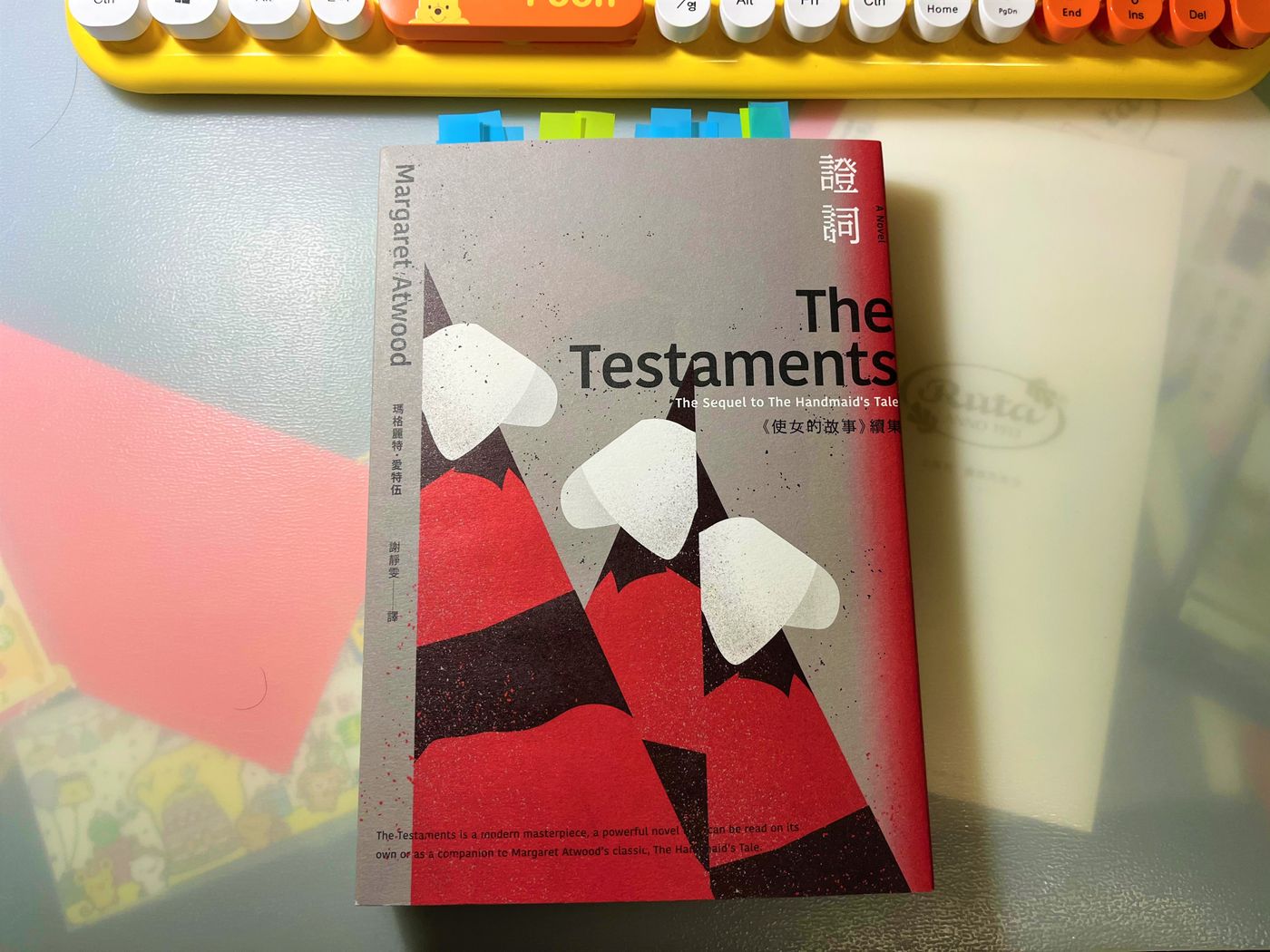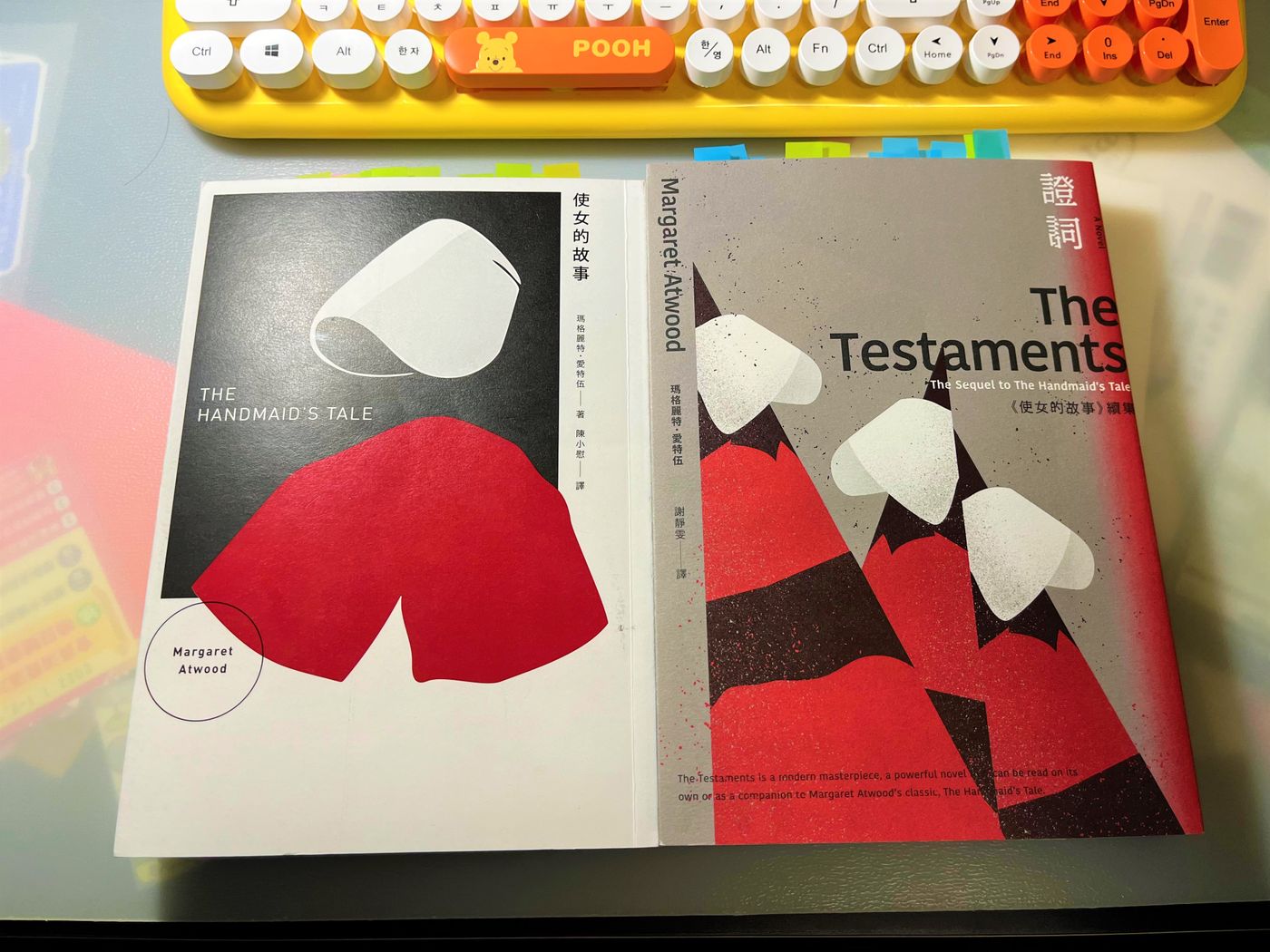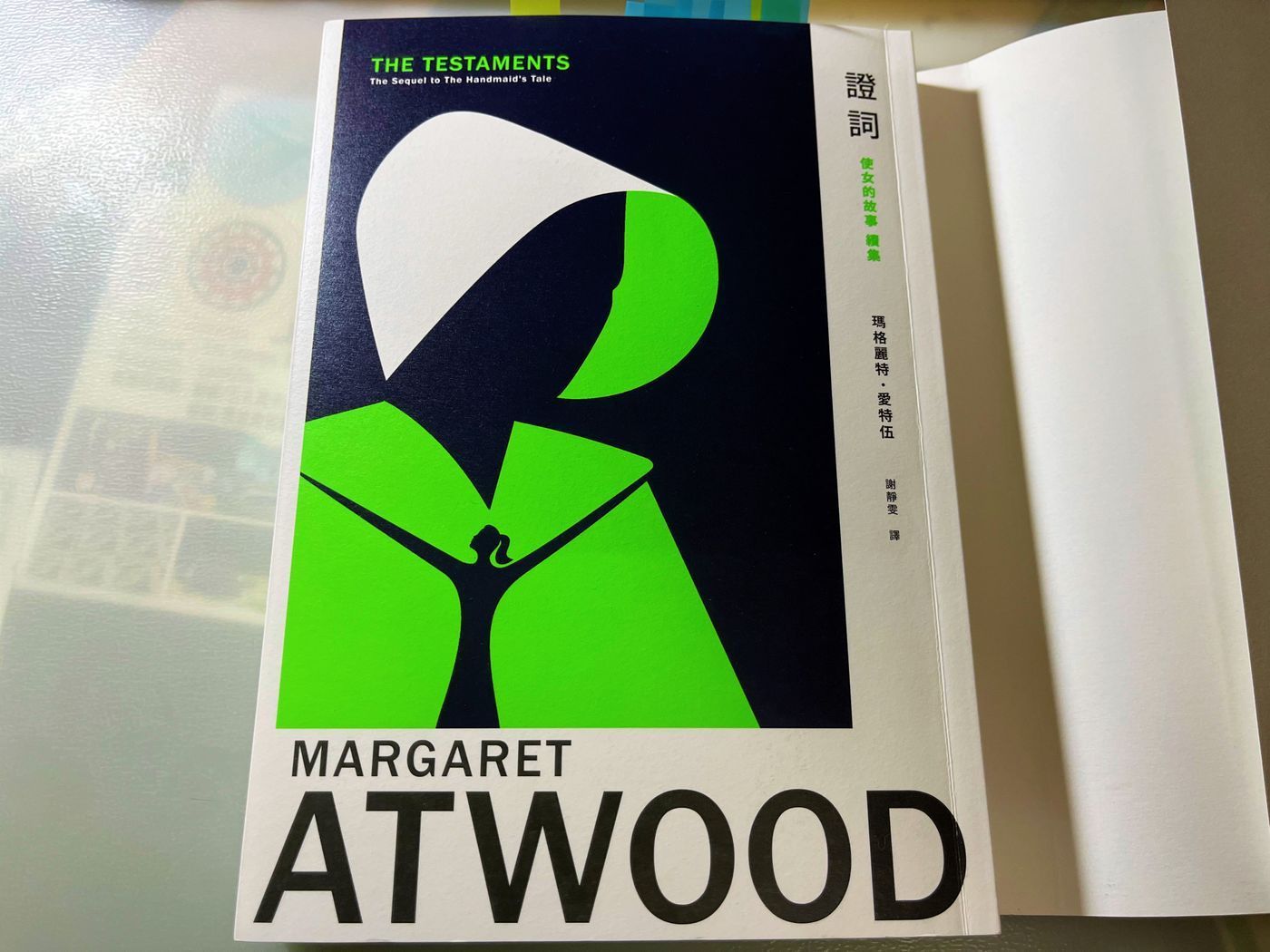Read for you|Testimony|Women's mutual monitoring and discipline, how will "you" choose?

After 34 years, "Testimony" (2019) was finally published as a sequel to "The Handmaid's Tale" (1985). In the meantime, the status of women has changed all over the world, and more books on women's identity have appeared. Since 2017, the hashtag #MeToo has been used. historical discourse. But it also reveals that even in this 21st century, women are still struggling with issues such as sexual violence and power-based sexual assault.
And this sequel, which has been eagerly awaited by all walks of life, has finally appeared after half a period of time. At this moment, women are still fighting in many corners of the world for fertility, upbringing, physical rights, and wage equality. It seems like an endless war.
Especially in recent years, both in the United States and Taiwan society, there have been doubts about trying to point fingers on women's reproductive rights, and Texas, the United States, passed the "Texas Heartbeat Act" in 2021, forcibly overturning the old, relative to women. In the friendly Roe v. Wade (1973) case, even all "people", even your unrelated neighbors next door, can use this act to "sue" you, including doctors, hospital counters, etc. The receptionist, the nurse, and even the person who drives you to and from the clinic must be jointly and severally liable, and the whistleblower even gets a bonus? !
Can't a woman's body and a woman's fertility make her own decisions?
When anyone can interfere with a woman's womb, a woman's behavior, how far is the scene in The Handmaid's Tale from us?

I really like what the writer Mrs. V said about "Testimony":
"The Testimony is a book of hope, not because it depicts a smooth revolution or a bright future, but because it shows us that in the cracks of life, as long as we still have words and are willing to speak, we Flowers will bloom." (Quoted from "In the Crack of Life, a Flower Blooms - Mrs. V's Reading of "Testimony", the article website is attached to the reference at the end of the article)
" Testimony" does carry a rare symbol of hope , and after reading it, it seems as if the conservative kingdom of Gilead will collapse (and it does), and women will feel liberated as a result. .
This book is different from the previous work "The Handmaid's Tale", which is written from the perspective of Offred, but alternately tells the story with three different protagonists, namely the daughter of the Archbishop of Gilead, "Iger". "Niss", "Daisy", a teenage girl who grew up in Canada, and "Mother Lydia" who has appeared in the previous work.
The three protagonists are in different places in the same time and space, and tell the story from their own growth perspectives.
See the social system of Gilead and the division of labor of women in society through Agnes' eyes ;
From Daisy's perspective, we can get a glimpse of the changes in the international community in the more than ten years after the state of Gilead , and how the outside world views an extremely harsh and conservative country, and even know how external organizations penetrated through this period. , aid the women of Gilead by means of rescue;
And Mammy Lydia confesses his "contribution" to this terrifying country , and how he took a place in this absurd country, and ultimately desires to overthrow this terrifying regime, and she will also reveal how this country is constructed, women and women. How to be dominated with the help of women.
If "The Handmaid's Tale" is like an isolated island in a country of terror, understanding the world through a single point, the sequel "Testimony" is to construct different aspects of the world through three women, and through the stacking of stories, each other Weaving a dense network of connections, the whole world view is explained more clearly.

From this book, you can get a glimpse of the "division of labor" of women in the society in the book. Different types of women are restrained from each other in a society dominated by men. The archbishop's wife in blue, the low-level female worker "Ma Da" in green, The brown tuxedo is the nanny who shoulders the responsibility of women's management, and the pink, white, and purple tuxedos that symbolize the little girl's flowery appearance, and finally the maid in blood red.
Every kind of woman is classified, every kind of woman has so-called "responsibility", and all the disciplinary responsibility falls on the woman herself. The nuns have almost all dominance over women, and managing these women will How to be paired, used, and sometimes even men can't intervene.
This seemingly large "authority" subtly implies that women's power in the real world is often "empowered" by men. Although the terms have been negotiated with each other at the beginning of the establishment of the country, at the end of the story, the archbishop directly interferes with the statute of women's autonomy and men's intrusion, regardless of the agreement. It also subtly satirizes women's power, even if it seems to be stable, it may collapse in a man's mind.

But looking back, in fact, the saddest thing in this book is not how men trample on, break their promises, or use vested interests to enforce the rules forcefully, classify and regulate women in various ways, in order to maintain their dominant position, but Is it true that in this oppressed and divided society, "solidarity" among women is really impossible?
If women have to hurt each other to survive in such a troubled world, then some people are forced to be the lowest-ranking handmaids, so will some people volunteer to be "Mother Lydia" who helps the system control women?
Maybe we don't want to, and we will despise the helpers of these systems because of this, but reading the story of Aunt Lydia in the book, I can't help but feel sympathy for her experience , and I can't help but feel empathy for her choice. Ask yourself, "If it were me, what would I choose?" Should I choose to die with the idea, or to leave a life for the future? Choose to die with clean hands, or go down the road of revenge paved with innocent blood?
Finally, I will say that the book "Testimony" is a classic work by the author Margaret Atwood after 34 years of hardening. If it is a dystopian type of book, the author explained more The complete setting helps to describe the slightly flimsy worldview of the previous work; and for women's literature, it subtly alludes to the real world in many details, allowing people to examine themselves and themselves in the process of reading. Examine this society.
It is a good book that can be felt by pure reading, and feminists can also gain something from it. I sincerely recommend it.
References
- Wikipedia, the free encyclopedia - Margaret Atwood
- Wikipedia, the free encyclopedia - #MeToo
- Texas Abortion Laws: What's Controversial About the Biden Administration's Prosecution of Texas' Texas Heartbeat Act? (BBC Chinese)
- In the crack of life, a flower blooms——Mrs. V reads "Testimony" (Nine Songs)
(The above online data retrieval date is 2022/5/2)
Like my work? Don't forget to support and clap, let me know that you are with me on the road of creation. Keep this enthusiasm together!





- Author
- More